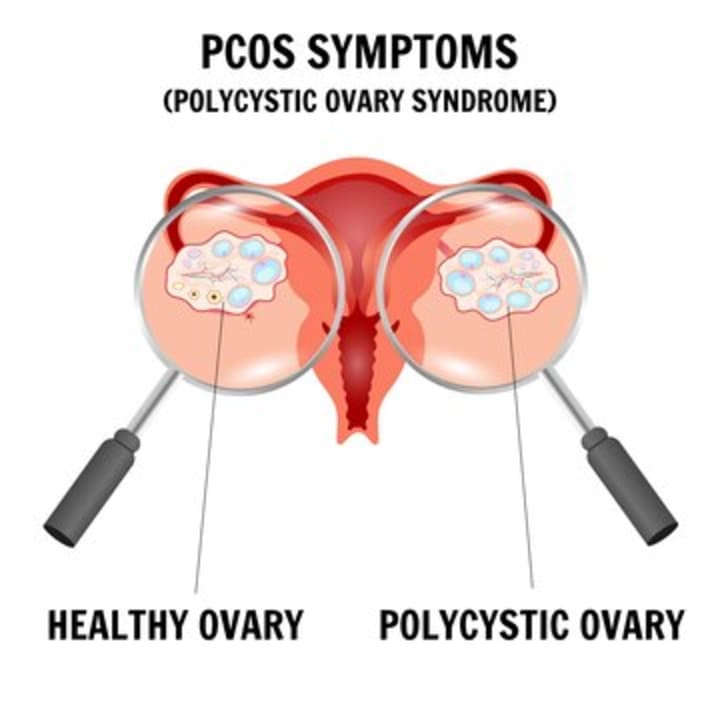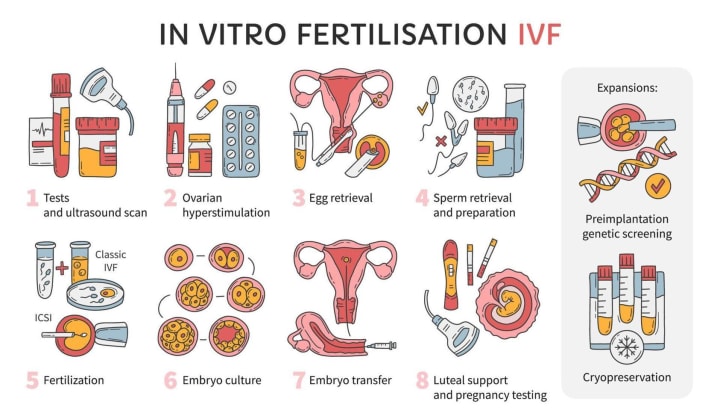IVF for PCOS: Why It May be the Best Fertility Treatment Available
IVF Treatment for PCOS

Many women with Polycystic Ovary Syndrome (PCOS) face difficulties getting pregnant due to irregular ovulation. IVF for PCOS offers a powerful solution. This article explores how IVF can significantly increase pregnancy chances for women with PCOS, overcoming challenges associated with the condition.
Understanding Polycystic Ovary Syndrome (PCOS)
Polycystic ovary syndrome (PCOS) is a hormonal condition that impacts roughly 1 in 10 women when they're able to get pregnant. Diagnosis typically involves irregular periods, excess androgen (male hormones), and/or multiple cysts on the ovaries (seen on ultrasound).
This hormonal imbalance can disrupt ovulation, making natural pregnancy challenging. However, IVF treatment for PCOS can bypass these issues.

How does PCOS Affect Fertility?
For pregnancy to occur, a crucial step is ovulation, where a mature egg is released from the ovary. PCOS disrupts this delicate process due to hormonal imbalances.
These imbalances can cause follicles (tiny sacs containing eggs) to develop but fail to mature or release an egg (ovulation). In some cases, this leads to irregular or infrequent periods or even a complete absence of ovulation.
Additionally, PCOS may affect egg quality due to the hormonal environment within the ovaries. These factors combined make natural pregnancy difficult, but IVF for PCOS provides a powerful alternative.

IVF for PCOS: A Targeted Approach
In Vitro Fertilization (IVF) has emerged as a highly successful treatment for infertility caused by PCOS. Unlike natural conception, IVF bypasses the ovulation issues associated with PCOS.
During IVF, eggs are retrieved directly from the ovaries and fertilised with sperm in a laboratory setting. This process offers greater control over egg quality, potentially improving the chances of a successful pregnancy for women with PCOS.
Tailored IVF Process for PCOS
IVF treatment for PCOS follows a similar structure to standard IVF, with some adjustments. The process typically involves medication to stimulate egg development, followed by egg retrieval using a thin needle guided by ultrasound.
The retrieved eggs are brought together with sperm in a controlled laboratory environment for fertilization. The resulting healthy embryos are then carefully transferred back into the uterus, where they have the chance to implant and develop into a pregnancy.
For PCOS patients, medications might be adjusted to optimise egg quality or ovulation induction, if needed, to ensure a successful cycle.

Why is IVF Treatment For PCOS Different From Standard IVF?
Standard IVF uses a single medication approach to stimulate egg development. IVF for PCOS personalises this by potentially using different medications or lower doses to manage the development of numerous follicles, aiming to improve egg quality and optimise the chance of a successful cycle.
What are the advantages and disadvantages of IVF for PCOS patients?
Advantages:
For women with PCOS facing infertility challenges, IVF for PCOS provides a powerful solution with significant benefits. Here's why:
- Increased Pregnancy Chances: Bypassing ovulation issues and offering more control over egg quality, IVF significantly improves the likelihood of conception.
- Addressing Other Fertility Issues: IVF can address other fertility problems alongside PCOS, such as male factor infertility, for a more holistic approach.
Disadvantages:
IVF treatment for PCOS, like any medical procedure, has some drawbacks:
- Cost: While IVF can be a significant financial commitment, insurance coverage for these procedures varies by plan. It's important to discuss costs and coverage options with your healthcare provider and insurance company.
- Multiple Procedures: The process involves several appointments and procedures, which can be physically and emotionally demanding.
- Open Communication is Key: Discussing these factors with your doctor is crucial to ensure informed decision-making.
Success Rates of IVF for PCOS
IVF treatment for PCOS offers success rates ranging from 50-70% per cycle, depending on factors like age and overall health. However, an individual consultation with a fertility specialist remains vital for a more accurate estimate.
Bottom line
IVF for PCOS offers women with PCOS the opportunity to take control of their fertility journey and pursue their dreams of parenthood. It offers increased pregnancy chances, addresses other fertility factors, and provides control over egg quality. While there are costs and procedures involved, discussing IVF with your doctor can help you determine if it's the right path to create your family.
About the Creator
Enjoyed the story? Support the Creator.
Subscribe for free to receive all their stories in your feed. You could also pledge your support or give them a one-off tip, letting them know you appreciate their work.





Comments
There are no comments for this story
Be the first to respond and start the conversation.